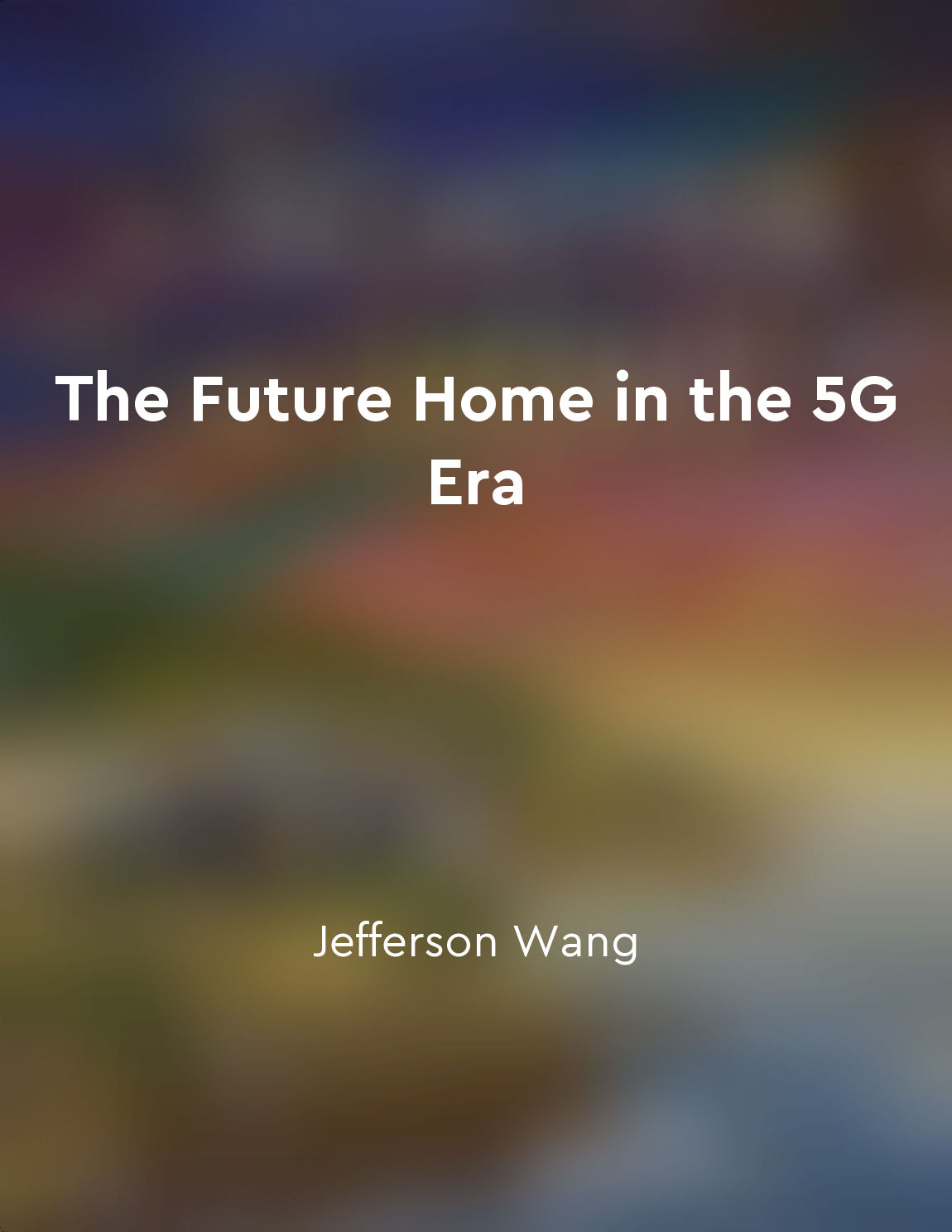Urban planning will be influenced by smart home technology from "summary" of The Future Home in the 5G Era by Jefferson Wang,George Nazi,Boris Maurer,Amol Phadke
The integration of smart home technology into our daily lives is set to revolutionize the way we interact with our living spaces. As more and more homes become equipped with interconnected devices that can be controlled remotely, the implications for urban planning are significant. Imagine a city where every home is equipped with sensors that can monitor energy usage, traffic patterns, and even air quality. This data can be used to inform city planners about how to optimize resources and infrastructure to create more sustainable and efficient living environments. For example, by analyzing data from smart homes, city planners can identify areas where energy is being wasted and implement initiatives to reduce consumption. They can also use data from smart devices to predict traffic patterns and adjust transportation routes accordingly, reducing congestion and emissions. Furthermore, smart home technology can help improve the overall quality of life in urban areas. For instance, by monitoring air quality levels in real-time, city planners can take steps to reduce pollution and create healthier living conditions for residents.- The integration of smart home technology into urban planning has the potential to create more sustainable, efficient, and livable cities for future generations. By harnessing the power of data and connectivity, city planners can make informed decisions that benefit both the environment and the people who call these cities home.


